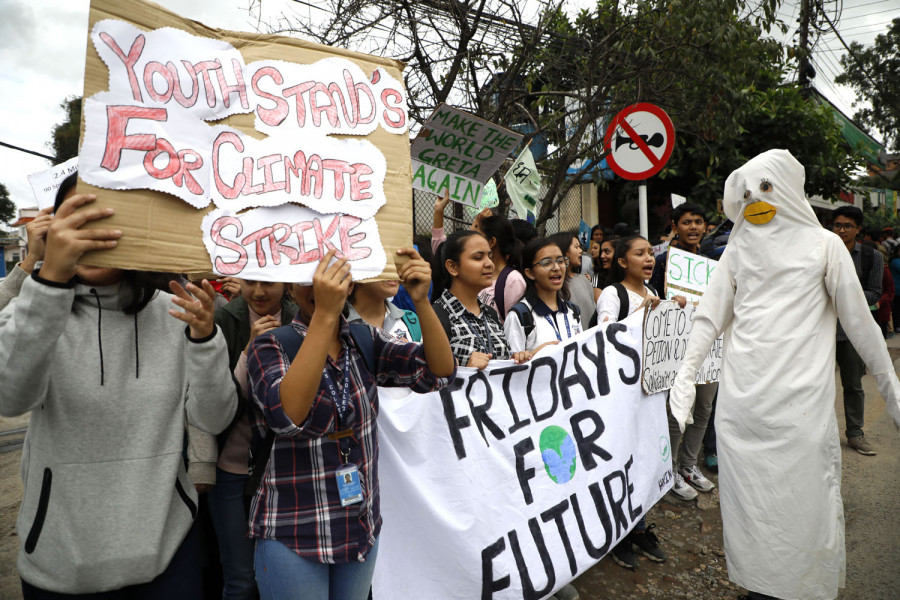CLIMATE CHANGE AND ROLE OF NEPALESE YOUTH

Climate change is becoming a threat to our way of life, our civilization and ultimately the existence of human beings on the planate itself. The population who should be most concerned about the climate crisis is the population of young people. According to the latest survey, around 21 % of Nepal’s population is in the age range of 16-25 years and 41 % are in the age range of 16-40 years. The global figure of the young population in the age group of 15-14 years is around 1.2 billion.
This means the around 4! % of the population will be facing the most serious effects and impact of
climate change in Nepal and the world. It is therefore not surprising that young people all over the world are rising up and raising the issue of climate change and the world leaders not taking serious actions at the global platforms including the General Assembly of the United Nations. Only 18 years old high school student – Greta Thunberg – from Sweden has become a world’s youngest leader and climate activist who started raising climate issue in her home country by going on a climate strike in front of her country’s parliament. Soon this movement spread throughout Europe and many parts of the world. Greta’s courage and single-person mission inspired millions of youth around the world and initiated a youth-led global climate strike and young people’s climate voice movement. Her main goal was to inspire and influence global political leaders to take the climate change issue very seriously and cut emission of the greenhouse gas (GHG), especially carbon emission. Greta has addressed parliaments of major industrialised countries and accused the powerful world leaders of stealing the ‘dream of young people’ around the world. Greta’s movement has also influenced Nepalese youth and today many young people, among them, school and college students are raising the climate change issue at their schools and also in general public forums. But in my view, this is not enough. In 2022, Nepal was ranked as 11th most climate vulnerable countries (in terms of climate risk index published by German Watch). Nepal was also ranked as 10 th most polluted country in the World in 2022. We all know that pollution and climate change both impact our
health, livelihood, wellbeing and life span itself. And youth (41% of Nepalese population) will be
impacted the most and for the longest period in their life. Therefore I feel youth should unite for climate and pollution especially plastic pollution control. Climate change needs all of government and all of Society to act to reduce its impact. I suggest to do five things to start with: a) school students should make their families aware of the serious health and wellbeing related adverse impacts of climate change and pollution; b) Every student should plant few tress and herbs in their school, home and surrounding vacant places and unite to maintain them; c) segregate garbage at home schools into decomposable, recyclable & reusable and disposable in the landfill sites; d) use electrical vehicles (e.g. e-bikes) to cut carbon emission; and e) raise awareness not to burn biomass, garbage and especially plastic at home and surrounding areas. Of course, strong youth movement to make our Parliament members in the Centre, Provinces and local leaders in municipalities should be started by school students. Of course all movement should be peaceful and short not to disrupt regular school and college studies.
